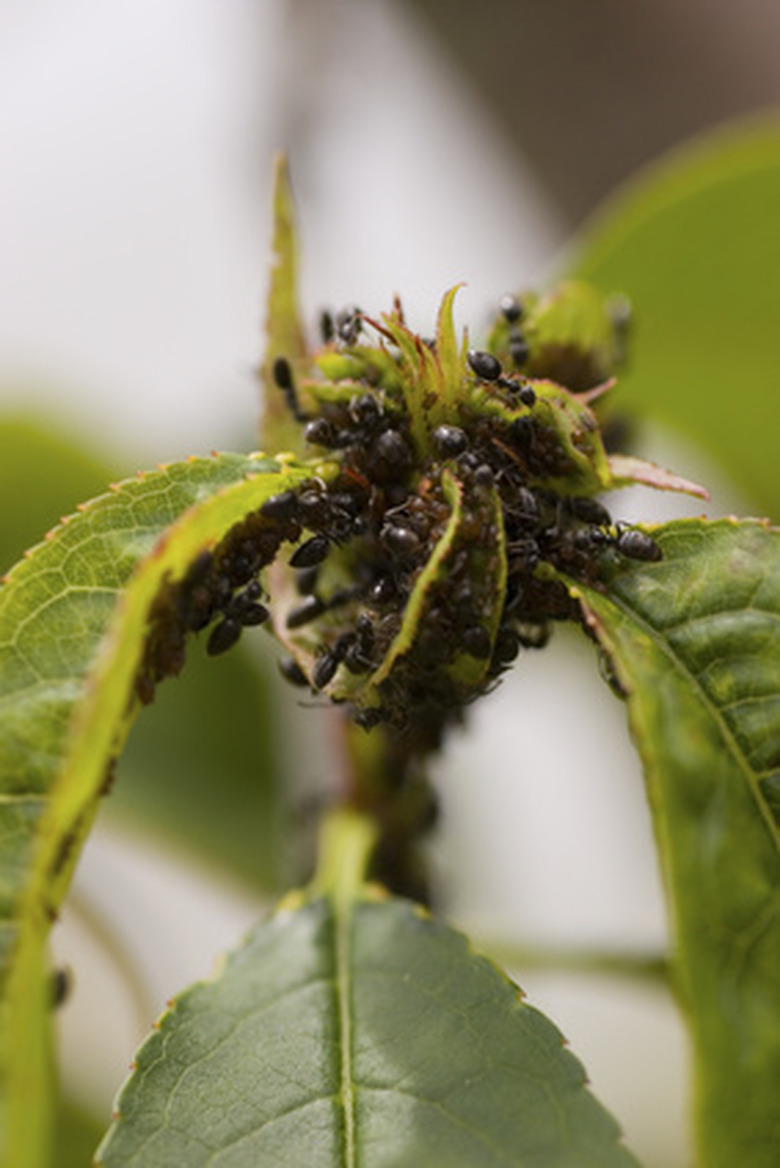Plant Lice
Plant lice, or aphids, are a common plant pest. Aphids are not capable of inflicting damage in small numbers, but if left to breed can make large populations that can destroy plants. Aphids are also known for transmitting a large number of plant diseases.
Appearance
Aphids are small insects, generally only 1/8 of an inch in length. Most aphid species are a yellow or light-green color, although many species are different colors. Aphids are mostly wingless, but colonies of aphids will have winged members. Some aphids may have a light, fluffy material on their bodies. Aphids have slender legs and a long "beak" that allows them to drain fluids from inside the plant.
- Plant lice, or aphids, are a common plant pest.
- Aphids are mostly wingless, but colonies of aphids will have winged members.
Life
Aphids are usually stored in eggs during the winter, bursting forth in spring. Because aphid females can reproduce parthenogenetically, that is, without the assistance of males, aphid population will grow rapidly.
Natural Predators
Spraying aphids is not generally necessary unless population is out of control. Aphids have many natural predators during the egg, larvae and pupil stages, and their numbers will be thinned out accordingly. Ladybugs, lacewings and flower flies prey on aphids. Wasp parasites will also feed off aphids, paralyzing them and making them round and tan colored.
Water
Aphids are not very strong insects, so spraying plants with a blast of water from a garden hose or sprinkler system will keep them in line. If the plant is inside, aphids can be removed using a cotton ball or your fingers–if you're not squeamish!
- Aphids are usually stored in eggs during the winter, bursting forth in spring.
- Aphids have many natural predators during the egg, larvae and pupil stages, and their numbers will be thinned out accordingly.
Chemical Control
If natural predators are not present on the plant it may be necessary to use chemical control on aphid colonies. Insecticidal soap and horticultural oil sprays can be used to kill colonies. Oil sprays are effective only for a few hours at a time, so the spray must be thorough. Applications should be repeated to ensure they are effective.
